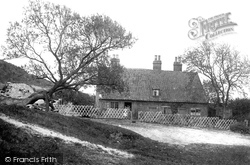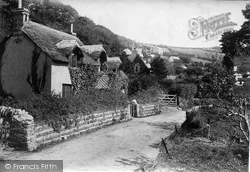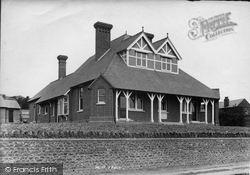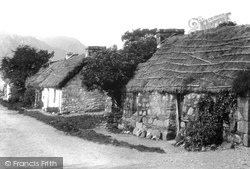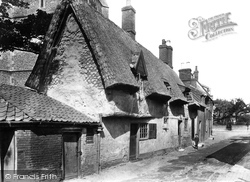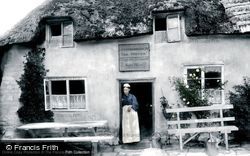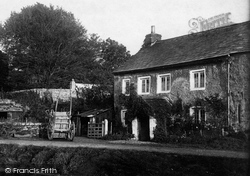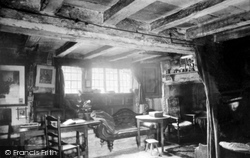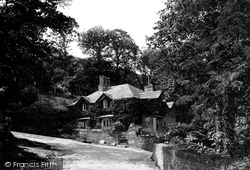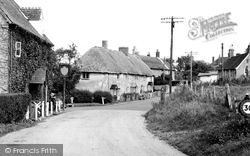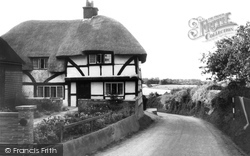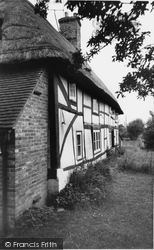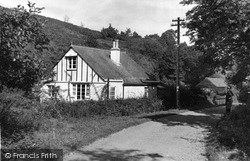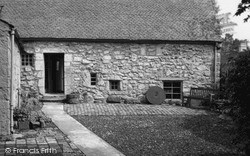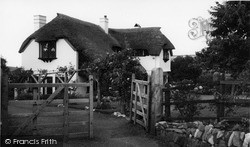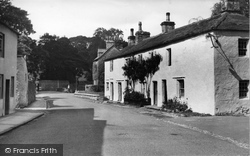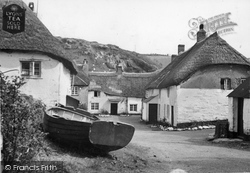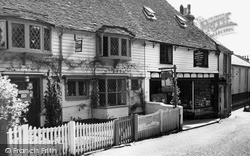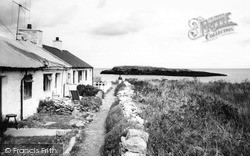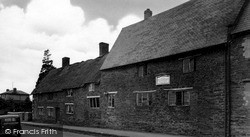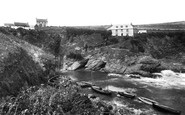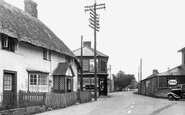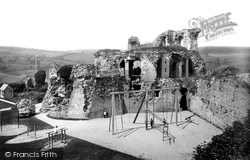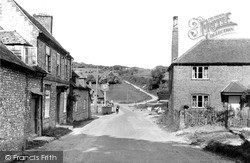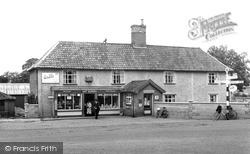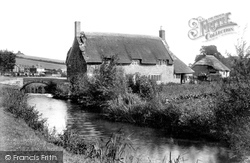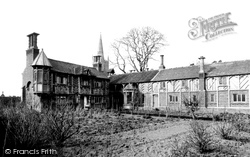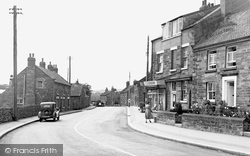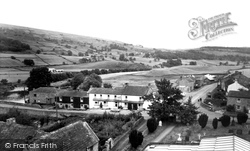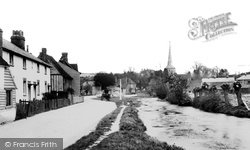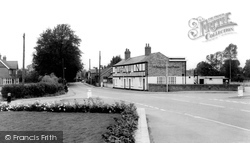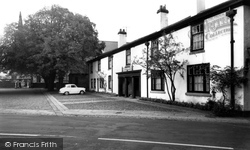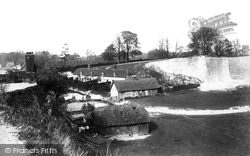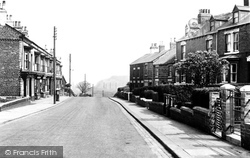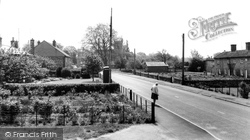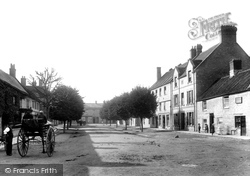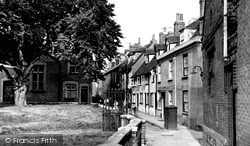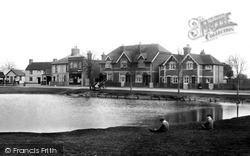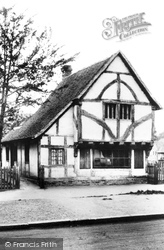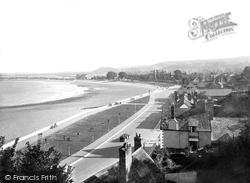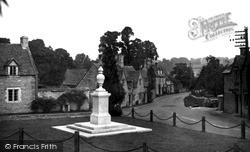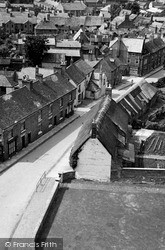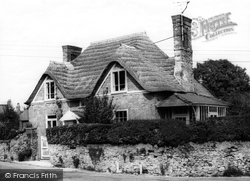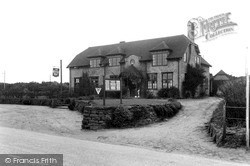Places
6 places found.
Those places high-lighted have photos. All locations may have maps, books and memories.
Photos
2,406 photos found. Showing results 1,321 to 1,340.
Maps
41 maps found.
Books
Sorry, no books were found that related to your search.
Memories
2,827 memories found. Showing results 661 to 670.
Tom Lizzie Cook
1948 - onwards. My Mother and her two cousins were brought up by their Aunt and Uncle as above and I spent all my childhood holidays with them. Great Aunt Liz was well known for her teas for visitors and ramblers from CHA Porlock. ...Read more
A memory of Culbone in 1948 by
Doodlebug
Back in 1944 then being 13 years of age I was admitted into the Cottage Hospital in Epsom to have my tonsils removed. I recall at the time the only other person in the ward was a soldier at the far end of the ward, who each time the ...Read more
A memory of Epsom in 1944 by
When I Was A Little Younger
I lived in Goldsithney and used to go fishing with the Allans, Jeff and David and the son of Mr Murray a French teacher at Humphrie Davy. My cousins lived just 50 yards from the Allans and were called Tamblyn. We ...Read more
A memory of Prussia Cove in 1961 by
Granny And Grandad Green
I remember going to visit Granny and Grandad Green every Sunday mornign with my father, Geoffrey Green. When out visit was over, usually I was allowed a 'treat' from the shop that Granny Green ran. We would go ...Read more
A memory of Hurstbourne Tarrant in 1963 by
Where Is This Cottage
I think this cottage is the one to the right of the bus shelter.
A memory of West Overton
The Parkers
Hi, I am trying to find any info on my family history in Frimley, does anyone know of brothers Edward George Parker (born 1902), Frederick William Parker (born 1900), and cousin William Parker (born 1910)? They lived in the ...Read more
A memory of Frimley Green in 1910 by
The Bartrams
There is a long line of us 'Bartrams' living and working in Cromer. I myself was born in East Runton 1956, although at the time my parents Bernard and Mary lived in Gas Works Cottage, Cromer. We moved to Lynwood Road, Cromer in 1957. ...Read more
A memory of Cromer by
Farming From Horses To Electronics
My grandfather G. A. Smith took the tenancy of Springs Farm on Edingley Moor in 1931, when I was six months old. A builder by trade, and a sergeant in the Sherwood Rangers Yeomanry during the First World War, he ...Read more
A memory of Edingley in 1930 by
Netherthong Public Houses Part 1
This chapter is a work in progress and as it is more than the 1000 words allowed in this memory, I have split it into 2 sections. The current title is : Public House, inn, alehouse, tavern, pothouse, beer ...Read more
A memory of Netherthong by
Son Of Sgt Bruce Krrc
My father was stationed at Chisledon Camp from 1939 to 1942. Living in Littlehampton on the south coast, threatened with invasion, my mother rented the end thatched cottage of the row of cottages which face the railway line ...Read more
A memory of Chiseldon in 1940 by
Captions
2,020 captions found. Showing results 1,585 to 1,608.
The journalist-cum-explorer Henry Morton Stanley was born John Rowlands in a cottage beneath the castle.
This sizeable hamlet on the Downs south of Harting has no church, but boasts some attractive flint cottages and fine scenery.
At the southern limits of the county, close by Diss, this delightful village of knapped flint cottages sits in wooded countryside in the valley of the Little Ouse.
This seemingly idyllic rural summer scene on the banks of the River Brit, with its group of thatched cottages, lines of washing and vegetable garden, is brought acutely into focus by a closer
Beneath all this timber-framing, turrets and fancy brick chimneys is an 18th-century cottage.
Little has changed in this picture over the years – the farm cottage on the left and the Manor House, far right, remain, but the grocer's shop succumbed to supermarket competition and is now a private
From the 16th-century tower of St Andrew's Church, established by monks from Bridlington some 900 years ago, we see the bridge over the Swale and the white Bridge Inn (centre). 17th-century cottages stretch
with the River Darent running through it and under the 15th-century humpbacked bridge (seen here behind the horse and cart) alongside a ford; it possesses an assortment of Tudor brick and timbered cottages
The pub fronts Main Street, sitting prominently at the junction of Cosby Road and Station Road, and appears to be the bad conversion of a former row of cottages.
Standing on the site of what were once three fishermen's cottages, the Hesketh Arms was originally called the Black Bull.
This view, looking north towards the entrance (in the Alton Road), shows several cottages built of chalk, some of which have since been demolished.
At the far end of the left-hand row of houses we can just see the gable end of the Cottage Hospital, built in 1874 by Bell Brothers for the casualties inevitably arising from the local ironstone mining
The single-storey cottage has been converted to changing rooms for the sports field. At the corner of the metal fence is the village sign, unveiled by Bill Heffer.
The pub fronts Main Street, sitting prominently at the junction of Cosby Road and Station Road, and appears to be the bad conversion of a former row of cottages.
Beneath all this timber-framing, turrets and fancy brick chimneys is an 18th-century cottage.
Linden House, a later 19th- century insertion on the right with gabled upper windows, dwarfs the late 18th-century cottages to its right.
Beyond are cottages which were at one time the parish poorhouse, where the worthy poor made lace and baked bread.
The Henry Cottages next door still stand, and only the two small houses on the extreme right have been transformed - they are now one building with a bow window on the ground floor.
This timber-framed Tudor cottage originally occupied a site in Malden Road (now the Broadway) closer to the main crossroads, but it stood in the way of the eventual widening of the street.
Now, the level of the road was raised to prevent flooding of the cottages on the far side.
different this quiet little place might have been had the potential been developed from the chalybeate spring, discovered in 1807 where the road leads out of the village to Stow, as inscribed on Spa Cottages
Note that some of the cottages in this row appear to be thatched only on the street side. On the left, the Wheatsheaf Inn is just out of shot.
The flamboyant thatch of a former infants' school was turned into a cottage orne by Matthew Knight in 1881; at the turn of the century it was the home of the local headmaster, John Charles Bucknall.
This shows the Cottage Loaf as tea rooms, for which purpose it was built in 1930.
Places (6)
Photos (2406)
Memories (2827)
Books (0)
Maps (41)


